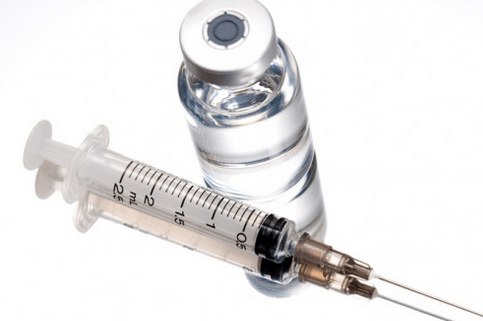Health Minister launches African Vaccination Week
 Mr Kwaku Agyeman-Manu, the Minister of Health, has launched the African Vaccination Week to commemorate the preservation of the health of children through vaccination.
Mr Kwaku Agyeman-Manu, the Minister of Health, has launched the African Vaccination Week to commemorate the preservation of the health of children through vaccination.
He announced that Ghana would from April 23 to 29, 2018, join all other African countries to mark the eight edition of the vaccination week on the theme: “Vaccines Work; Do Your Part”.
The theme, he said, was appropriate judging from the fact that there was an urgent need for everyone to ensure that all eligible children received their vaccines at the appropriate time.
Mr Agyeman-Manu launched the Week, as part of the scheduled activities at the five-day Annual Health Summit, which opened in Accra, on Monday. It is on the theme: “Achieving Universal Health Coverage-Using Innovative Approaches”.
Achieving Universal Health Coverage (UHC), Dr Manu said, was not just a case of rhetoric, explaining, “We need to back it up with action and selflessness as well as to ensure quality leadership which, the Government is committed to provide.”
Seven years ago, Ghana institutionalised the celebration, to among other things, raise awareness of the various health interventions that were available for children across the country.
The platform, he said, was also used to advocate for more resources from all stakeholders in immunisation.
Mr Agyeman-Manu said the country had achieved great successes over the years in child health through sustained immunisation, citing the elimination of neonatal tetanus since 2011, mainly through awareness, advocacy, as well as improved routine and surveillance activities.
He said childhood diseases such as measles, whooping cough, diphtheria, yellow fever and polio that used to kill or permanently maim hundreds of children annually in Ghana had also reduced tremendously.
He, however, warned that these diseases had not vanished, and may reoccur if “we slacken in our efforts at immunising all eligible children at the right time”.
He, therefore, said that effective June 1, 2018, Ghana would introduce Inactivated Polio-Vaccine (IPV) into its routine immunisation schedule, a move, which was aimed at consolidating the gains made so far and to achieve polio eradication, which was possible and within reach.
The Health Minister emphasised that vaccination was a community responsibility, saying, when the most vulnerable members of the population were vaccinated, the entire community was protected, thus the Ministry’s adoption of the slogan “Vaccinated Communities: Healthy Communities” for the celebrations locally, and called for the overall support from all stakeholders including the private sector.
Dr Rebecca Matshidiso Moeti, the WHO Regional Director of Africa, commended Ghana for the efforts made over the years in the quest to achieve UHC, and also the global agenda towards attaining the Sustainable Development Goals.
She praised Ghana’s health financing approach with the institution of the National Health Insurance Scheme (NHIS), as a commendable innovative health financing mechanism that was worthy of emulation by other African countries.
Dr Moeti also commended Ghana’s agenda for moving ‘Beyond Aid”.
She, however, encouraged the Ministry to strengthen its advocacy on preventive health to address the huge annual productivity losses resulting from ill-health, which had a huge cost implication of about 61billion dollars for the Government.
She said it was important to strengthen communities as an innovative way to leverage UHC at the community level and commended the MoH for implementing the Community-Based Health Planning and Services (CHPS) to address the health needs of the rural population.
She urged Ghana to continue strengthening its health systems, improve human resources and harness the use of digital health technology to add value to its service provision, reduce cost and to ensure that no one was left behind.
Source: GNA
